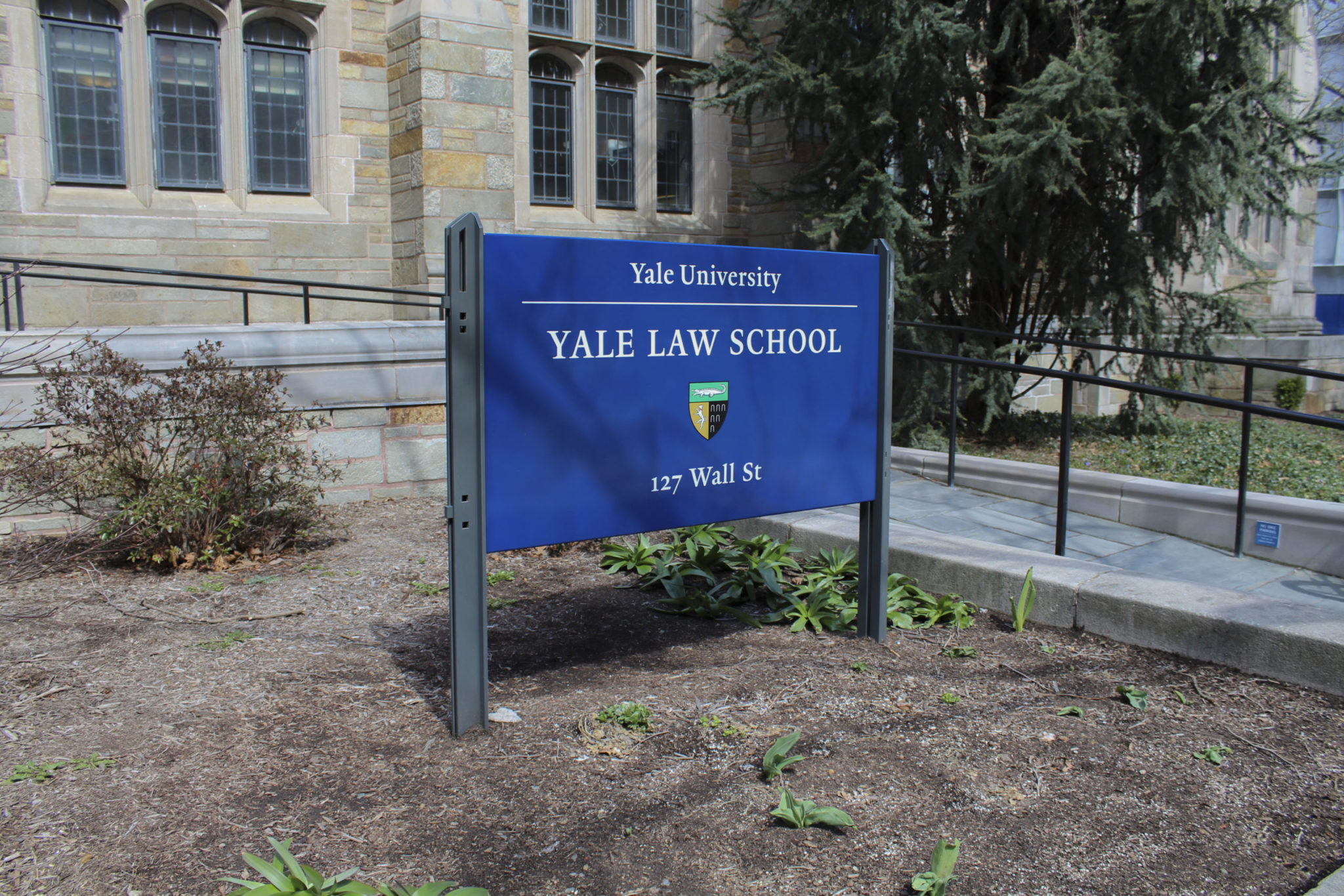Yale Law School European Law Association co-hosts climate initiatives talk
The Yale European Law Association co-hosted a Monday talk on European Union climate initiatives. It featured leading scholars and analysts on matters of EU climate policy.

Yale Daily News
The Yale Law School European Law Association co-hosted a talk titled “A Ray of Hope? Green Law and Policy in the EU” with the Harvard European Law Association on Monday afternoon.
The talk featured four panelists from varying fields of European climate policy and international environmental law. Matei Alexianu YLS ’23, a board member of the YLS European Law Association, was primarily responsible for organizing the event.
“The purpose of the event is to spark a conversation about the significance of Europe’s innovations on climate change policy and how they might inform U.S. policymaking,” Alexianu wrote in an email to the News. “Europe has emerged as one of the world leaders in some aspects of the fight against climate change, such as carbon pricing and corporate accountability. The speakers will analyze these initiatives: their design, impact, challenges, and lessons for the US.”
The seminar began with a debriefing of the United Nations COP26 Conference from University of Oslo law professor Christina Voigt, who attended the conference as a member of the Norwegian delegation. Voigt explored the causes for the heightened expectations and coverage of the summit and emphasized the issues that COP was able to deliver on, including guidance and regulations for the carbon market and emissions reporting.
Voigt was followed by Michael Mehling, the deputy director of the Center for Energy and Environmental Policy Research at the Massachusetts Institute of Technology and professor of practice at the University of Strathclyde Law School. Mehling considered the role of the EU as a frontrunner in matters of climate policy and focused on the implications of EU policy decisions within the global market.
With particular emphasis on the European Green Deal, Mehling described the threat of leakage — that the shift away from carbon intensive industries in certain countries might lead to their proliferation in less environmentally active nations — and how the issue could be rectified.
“Global environmental challenges cannot be solved by merely cleaning up our own front yard as long as we continue to consume goods and services shipped from countries that allow unsustainable practices,” Mehling wrote in an email to the news.
Following Mehling, Beate Sjafjell, professor at the University of Oslo and the Norwegian University of Science and Technology, analyzed the relationship between corporate law and European Union policy. She started by positioning the discussion about climate change in a broader context of sustainability research, explaining that in spite of all the talk of sustainability,
“We are still on a very certain path towards an uncertain future.”
Very recently, according to Sjafjell, a policy of sustainable corporate governance was introduced as part of the EU policy agenda, which raises the expectations of corporate social responsibility by requiring considerations of climate change, human rights and biodiversity in corporate governance, as opposed to the previously accepted practice of investor primacy.
Sjafjell also considered the effects that these policy changes have on U.S. investors in EU companies, EU investors in U.S. companies and U.S. participation in global value chains coordinated by EU companies. Sjafjell said that many of the effects may be indeterminate.
The final panelist, Jonas Meckling, associate professor at the University of California, Berkeley and visiting associate professor at the Yale School of the Environment, provided a comparative perspective between the EU and U.S. on matters of climate law and policy. Meckling focused on the points of divergence between terms of regulation and economic thought surrounding climate policy.
The seminar ended with a question and answer session during which the panelists focused primarily on the relationship between the COVID-19 pandemic and increased government spending, concluding that the marrying of infrastructure and climate policy, as well as increased coverage of climate disasters during the pandemic, is correlated with improved reception of government spending.
The Law School European Law Association is an association of Yale law students and scholars interested in European legal, political and social issues.
Clarification, Dec. 2: This article has been updated to reflect that the uncertainty outlined by Professor Sjafjell is a result of continued unsustainable corporate practices as opposed to EU policy reforms.







